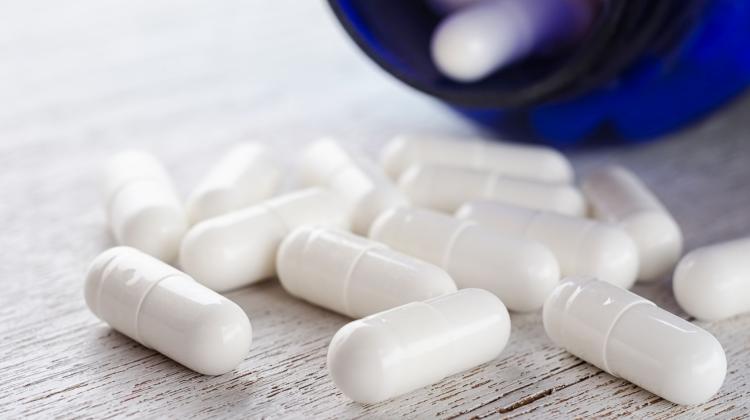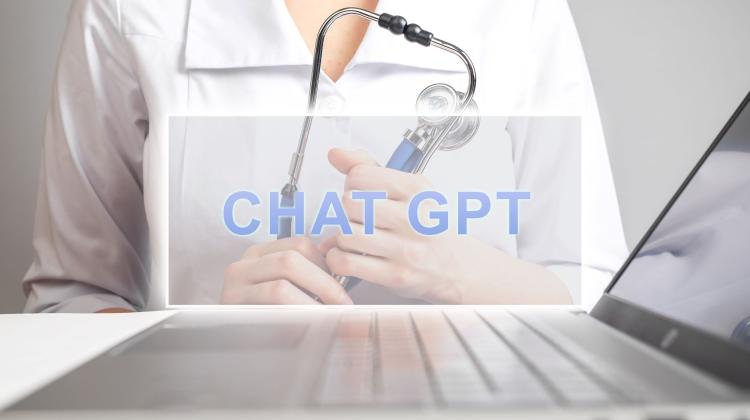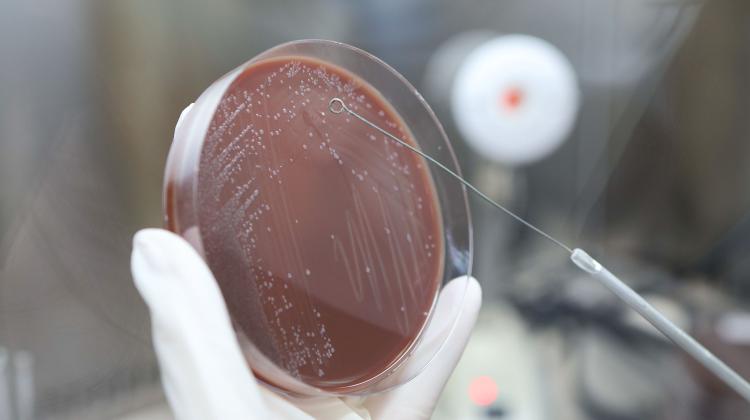Poland needs to shorten antibiotic therapy, says expert
 Credit: Fotolia
Credit: Fotolia
Despite a global trend to limit antibiotic therapy to the absolutely necessary, in Poland they are frequently overused, especially during the pandemic.
Professor Waleria Hryniewicz from the Department of Epidemiology and Clinical Microbiology of the National Medicines Institute says in an interview with PAP that joint, multi-directional and multi-sectoral measures are urgently needed to stop the increasing antibiotic resistance among the most common bacterial infections.
PAP: For many years, efforts have been made to limit the abuse of antibiotics, meanwhile their consumption has skyrocketed during the pandemic.
W.H.: Unfortunately, we have antibiotic overuse in both basic healthcare facilities and hospitals. This is obviously disturbing.
PAP: Why is this happening? Are doctors afraid that a patient with viral infection, such as COVID-19, is also at risk of bacterial superinfection?
W.H.: Of course, secondary infections caused by bacteria do happen, but microbiological tests are needed to diagnose them. According to the scientific reports, patients with slightly severe, but not severe disease, do not require antibiotic therapy at all.
PAP: When should antibiotics be used?
W.H.: When, for example, new symptoms of infection appear and the patient's condition deteriorates due to a bacterial superinfection. But it has to be diagnosed. In the case of a viral infection, antibiotics do not help.
PAP: But antibiotics are still prescribed, just in case?
W.H.: Certain irresponsible reports contribute to the problem. This was the case, for example, with azithromycin. In 2020, the information appeared that was helpful in the treatment of SARS-CoV-2. As a result, the sales of these antibiotics significantly increased. Azithromycin does not work on viruses, while does have many side effects and disrupts our microbiome.
PAP: We should be afraid to even mention such reports?
W.H.: Unfortunately. Someone will say something irresponsible, this information immediately spreads online, and then there are negative effects. It was the same with amantadine.
PAP: Treatment of antibiotics, when it is actually needed, should rather be shortened. This results from observations carried out in recent years.
There is a global trend to shorten antibiotic therapy because it has been shown that the more antibiotics we consume, the faster the pool of resistant bacteria grows. The first papers published by British researchers showed that in non-hospital pneumonia, the time of antibiotic treatment can be shortened to three days without deterioration of the therapeutic effect. Currently, five days of antibiotic therapy are considered to be sufficient. In the past, such treatment would continue for two weeks, now it is believed that the treatment can be shorter even in intensive therapy wards.
PAP: Doesn't this involve the risk of emergence of resistant bacteria or recurrence of the disease caused by resistant microbes?
W.H.: It does not. We strive to shorten therapy to reduce the pressure of antibiotics on the flora of our body, on the microbiome. But you always have to be careful. The reliable scientific data on this subject are still insufficient. The length of therapy may vary depending on the etiological factor. An example is meningitis caused by meningococci. It is particularly dangerous because it can have a rapid course. Despite that, an effective therapy last seven days. In the case of pneumococci, treatment should last two weeks, and in the event of bacterial infection with Listeria monocytogenes - at least three weeks.
PAP: But you have to know which bacteria you are dealing with?
W.H.: Yes, we need to know the etiological factor of infection and the antibiotics it is sensitive to. Only then we can decide to shorten therapy, of course after assessing the patient's clinical condition. But in general, the trend is to shorten the use of antibiotics without worrying about the effectiveness of treatment.
PAP: The patient, however, should not do it without consulting a doctor.
W.H.: The patient does not have the right to shorten the treatment or change the dosage in any way.
PAP: Do you know how often patients themselves shorten antibiotic therapy?
W.H.: No, we do not have such research. There are only Eurobarometer and our own data regarding the so-called self-treatment. According to these data, only 3-4 percent of patients in Poland use antibiotics they have at home (remaining from the previous treatment of a household member) without consulting a doctor.
PAP: People in Poland still treat antibiotics like aspirin.
W.H.: Unfortunately. The approval of furrasidine, an antibacterial medicine that is a derivative of nitrofuran, as an over-the-counter drug has additionally contributed to that. I do not know the current data, but in 2014 we used about 10 tons of this drug. I believe that the Office for Registration of Medicinal Products decision in this case was outrageous. My protests and the protests of the College of Family Physicians had no effect. And this drug may produce long-term complications, ones that will not be associated with it, and of course adversely affect the patient's own flora, generating the resistance.
PAP: How about animal breeding?
W.H.: The European Union banned the use of antibiotics in animal fattening in 2007, the United States introduced a similar ban in 2017. But I do not know how it is controlled. In any case, when one animal in a herd gets sick, all other animals receive antibiotics. This is considered a therapy, not fattening.
PAP: What are the effects of antibiotics in animal fattening?
W.H.: Antibiotics destroy certain bacteria and as a result animals gain a bit more weight.
PAP: What should be done to reduce the overuse of antibiotics?
W.H.: It must be a coherent multi-sectoral action, covering everything that is related to the use of antibiotics, as suggested by the European Union. Antibiotic-resistant strains of bacteria are everywhere, not only in hospitals but also in the water, wastewater, at home, at animal farms, in prisons. We should introduce a special national programme to protect against antibiotic resistance, one that would lead, for example, to the reduction of antibiotics consumption by 5 percent in five years by using antibiotics more rationally. This would be beneficial for patients and have an epidemiological effect.
PAP: Five percent would be considered a success?
W.H.: Certainly. It will not be easy. First of all, we need to start acting, set our goals and identify the way to achieve them. I tried to initiate this, but so far I have failed. What we need is universal education. We need to teach children that they must wash their hands regularly, blow their nose in a handkerchief or elbow at worst. Adults should use medications only as prescribed by their doctor. In turn, doctors must have all the necessary tools to treat bacterial infections, effective drugs and access to microbiological diagnostics. We should also train physicians with the latest knowledge about antibiotics. The National Health Fund and the Ministry of Health must join the fight against antibiotic resistance.
PAP: What about hospitals? There are many bacterial infections resistant to antibiotics in hospitals.
W.H.: Hospitals must introduce antibiotic policy, but for this we need specialists we do not have. Clinical pharmacists could help like in the United States, because we do not have microbiologists among physicians, in Warsaw there are only a few. There are also very few infectious disease specialists, who are now under pressure due to the pandemic. The medical staff training system in Poland is not conducive to the acquisition of current knowledge in the field of antibiotic therapy and infection control.
PAP: Do we have many bacterial infections resistant to antibiotics?
W.H.: Very many, in this respect we are at the forefront in the European Union, we have a place on the podium.
PAP: In Warsaw hospitals, and recently also in other cities, we have a New Delhi, the bacterial strain that is unusually highly resistant to antibiotics.
W.H.: Yes, it Klebsiella pneumoniae that produces carbapenemase, an enzyme that gives the bacterial cell resistance to all or nearly all available antibiotics. There is an epidemic of it in many Polish hospitals. But this is only one of many resistant bacteria. The problem is also other rods, including Pseudomonas aeruginosa and increasingly common in Polish hospitals multi-resistant Acinetobacter baumannii. Let's not forget about Staphylococci and Enterococci.
PAP: What about Clostridium difficile? After the infection in one of Warsaw hospitals, my family fought the infection for many months. There were two two-week hospitalisations and last resort antibiotics.
W.H.: You have my sympathies. The large-scale emergence of this bacteria is an example of the overuse of antibiotics and inefficient infection control programmes.
PAP: If nothing changes, there will be more and more situations that surgeons perform great surgery, and then everyone fights to get an antibiotic-resistant bacterial infection under control.
W.H.: I agree, but this dark scenario concerns more than just surgery. We must immediately take joint, multi-directional steps to stop this. Hospitals should have strong infection control teams. We saw that it was possible to stop antibiotic resistance at the beginning of the pandemic, when the number of infections, including those multi-resistant, decreased. But back then, due to fear of Sars-Cov-2, everyone washed their hands and compliance with the principles of controlling infections improved. There already are positive scenarios in many countries, we should simply try to implement them. (PAP)
Interview by Zbigniew Wojtasiński (PAP)
zbw/ zan/ kap/
tr. RL
Przed dodaniem komentarza prosimy o zapoznanie z Regulaminem forum serwisu Nauka w Polsce.


















